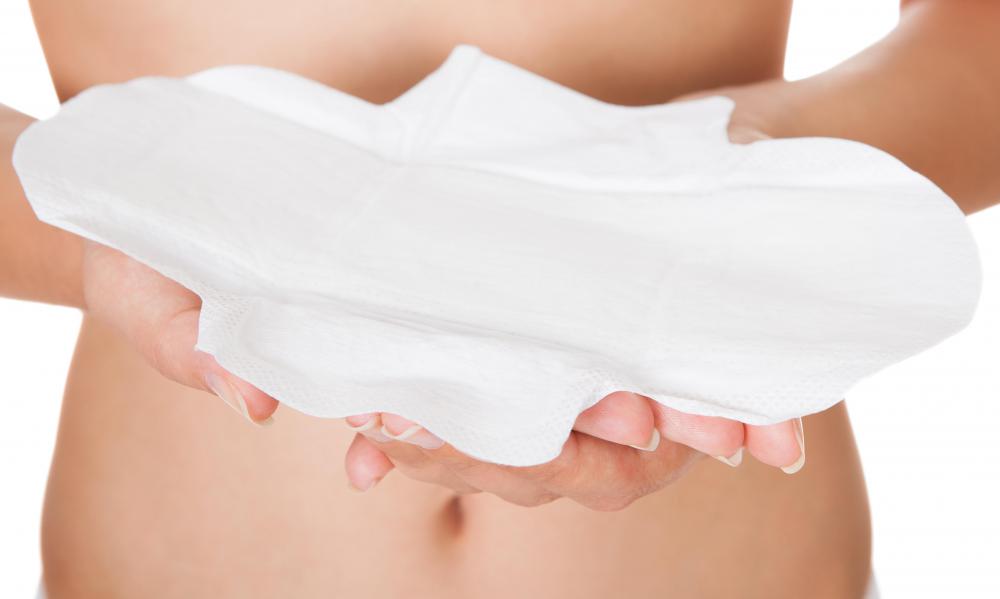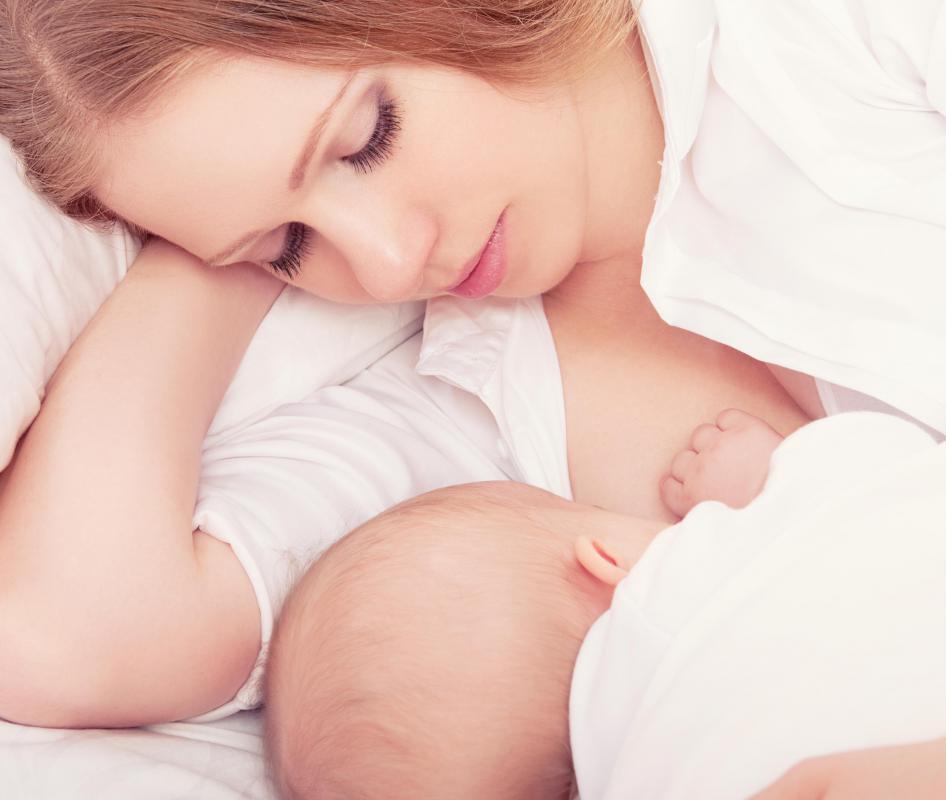At WiseGEEK, we're committed to delivering accurate, trustworthy information. Our expert-authored content is rigorously fact-checked and sourced from credible authorities. Discover how we uphold the highest standards in providing you with reliable knowledge.
What Happens to Menstruation after Childbirth?
The onset of menstruation after childbirth can be affected by a variety of factors, and most women find that there is no specific time frame for when it starts again. After giving birth, most women go through several weeks of vaginal discharge called lochia, and then possibly spotting for some time after that. Once that phase is over, menstruation may start again almost immediately, or it may take months or even years to resume. This can depend on a variety of factors, primarily whether the woman is breastfeeding or not, though other things like stress, medical conditions, or diet can also have an effect. Once periods do resume, women often find that the first few are heavier than normal; after that, periods may go back to their pre-pregnancy state, or they may be slightly irregular and different from what they were previously.
Shortly after delivery, a woman can expect to begin passing lochia, a discharge made up of blood, mucous, and tissue. This process takes several weeks, after which she will likely have a period of spotting before bleeding stops completely. Once this is over, she may begin to get her period normally, though the period of time before menstruation after childbirth starts can vary greatly from woman to woman.

In addition to normal variations between each woman’s body, there are several other factors that can impact when menstruation after childbirth starts. Typically the most important factor is if the woman is breastfeeding, which stimulates prolactin production that can in turn suppress ovulation. Women on certain medications or with certain types of medical conditions may also see delayed menstruation. Other factors that may affect it can include diet and exercise, stress, or excessive weight gain or loss.

The first few times menstruation after childbirth does occur, many women find that the flow of blood is heavier than they are accustomed to, and may also be irregularly timed. After this initial phase, many women notice their periods going back to normal. In some cases, women may find that the way they experience their periods has changed from before they got pregnant; they may have a lighter blood flow, the amount of cramping has decreased, and the number of days periods last can be longer or shorter. Again, these variations are different from one woman to the next, so it is typically a matter of time before a woman will know what to expect from her menstrual cycle after giving birth.
AS FEATURED ON:
AS FEATURED ON:

















Discussion Comments
I was wondering if its normal to have one period after two months of giving birth, then five months later it comes back regular? Plus. I was breastfeeding.
@turkay1-- Are you breastfeeding? Breastfeeding has a lot to do with menstruation. If your baby is mainly relying on breast milk and not formula, you will not ovulate. I think this is nature's way of giving the mother a break from pregnancy.
Once you stop breastfeeding, ovulation and menstruation will resume.
I suggest that if you're breastfeeding, do it around the clock rather than once in a while. Because not being persistent about it might be giving your brain mixed messages and causing irregular periods.
Also, some women confuse post-partum bleeding with menstruation after birth. So make sure you're not getting them mixed up.
@turkay1-- I'm not a doctor, but with both of my children, my menstrual period after giving birth started around the same time yours did. But once it started, it was regular. So I'm not sure why you're experiencing irregular periods right now but it might be due to natural hormonal changes. However, it's normal that your period took two-three months to start.
If you don't have your period again next month, you should see your doctor.
I gave birth five months ago. My first period after pregnancy was after two months. So I had my period on the third and fourth month. But this month, the fifth moth, I have not had my period. Is this normal?
Post your comments